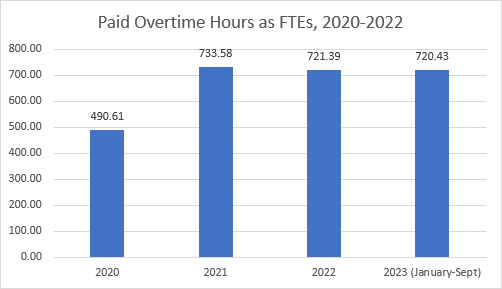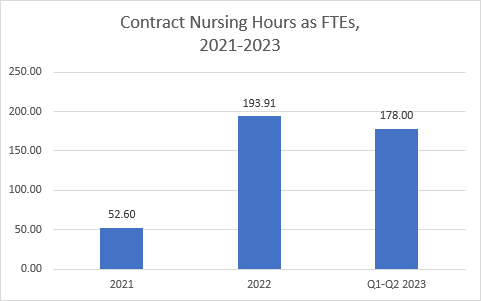October 25, 2023 (REGINA, SK): Hundreds of Saskatchewan’s registered nurses, students, and concerned members of the public gathered in Regina’s Wascana Park today as fears over staffing shortages reach a tipping point.
The rally comes in response to inadequate action on a crisis that continues to grow unabated and follows startling new survey findings on the state of healthcare. The October 2023 survey lifts the veil on a health system riddled with patient safety concerns, with more than 1,600 of Saskatchewan’s registered nurses responding.
“Long waits, missed treatments, cancelled procedures, avoidable hospital admissions; these and many other indicators of increased patient safety and risk are occurring across the system every day because of registered nursing shortages,” says Tracy Zambory, president of the Saskatchewan Union of Nurses (SUN). “Registered nurses need to see urgency and a clear political will to solve this crisis. We cannot wait to act when so many patients are needlessly suffering.”
Four in five (81.0 per cent) registered nurses report knowing of a time when patients were at risk due to short staffing. Of those who are aware of risk due to short staffing, over half (51.4 per cent) report the risk is frequent.
Over nine in ten note there have been times when short staffing has led to longer wait times (94.7 per cent) and delayed or missed assessment or treatment (90.7 per cent). Similar proportions indicate experiencing times when short staffing has led to poor patient experience (89.6 per cent), service reductions or disruptions (88.8 per cent), reduced standards of care (88.6 per cent), and delayed or cancelled procedures (85.3 per cent). While almost three quarters say that short staffing has led to unplanned or unnecessary admissions (73.2 per cent) and avoidable deterioration in patients (71.5 per cent).
“There’s an irrefutable link between registered nurse burnout and poorer patient outcomes, and right now, we risk worsening shortages as faith in workplace support and commitment to fix the problem dwindles,” notes Zambory.
Three in five registered nurses (61.8 per cent) have considered leaving the profession in the last 12 months for another line of work, with nine in ten (91.7 per cent) saying their working conditions have had a negative impact on their mental health. More than half (56.4 per cent) deem workplace mental health supports to be inadequate, while almost three-quarters (73.8 per cent) provide negative ratings for current government efforts to retain and recruit a registered nursing workforce.
There’s a growing reliance on private nursing agencies to address staffing shortages. A Freedom of Information Request filed by SUN revealed that in the 2.5 years prior to June 30, 2023, the Saskatchewan Health Authority (SHA) has spent $78.5 million on contract nursing services, with expenditures exceeding $45 million in 2022 alone.
“The misplaced focus on private agencies is costly to taxpayers, averaging $120 per hour, and it is not sustainable,” says Zambory. “We should be talking directly with registered nurses on the ground to build homegrown solutions; something I’ve repeatedly spoken to the SHA, the Ministry of Health, and Premier Moe about.”
SUN has been advocating for a nursing task force that includes unions, regulatory bodies, educational institutions, government, and employers to jointly develop a Saskatchewan-made plan to address the crisis.
The survey was conducted by Regina-based Praxis Analytics on behalf of SUN and yields a general margin of error of plus or minus 2.2 per cent at the 95 per cent confidence level.
SUN represents 11,000 Registered Nurses, Registered Psychiatric Nurses, and Nurse Practitioners in Saskatchewan.
- 30 -
For more information, please contact Lars Murran, SUN Public Relations Officer, at 306-529-4624 or Lars.Murran@sun-nurses.sk.ca
-------------
BACKGROUNDER:
Read the full survey HERE
Provincial Overtime Hours continue to climb:
- Over 1 million hours of overtime worked by Sask. registered nurses in the first 9 months of 2023.
- Overtime hours worked were equal to 720 FTEs in January to September 2023.

An increasing reliance on contract nursing agencies:
Freedom of Information Request disclosure for 2021, 2022, and Q1 to Q2 2023 (January to June 2023):
- Hundreds of thousands of hours contracted, equal to 178 FTEs in the first 6 months of 2023.
- Agencies were paid an average of $120 for each hour contracted.
- In the 2.5 years ending June 30, 2023, $78.5 million has been spent by the SHA on contract nursing services.
- Over $45 million was spent by the SHA in 2022 on contract nursing services.
- Annually, this represented 52.60 FTEs in 2021, 193.91 FTEs in 2022, and 178 FTEs (pro-rated for 6 months) so far in 2023 (Q1 to Q2).




